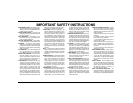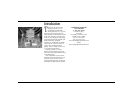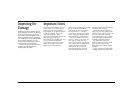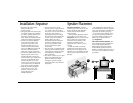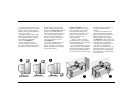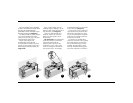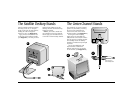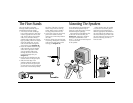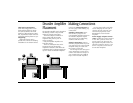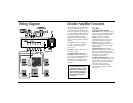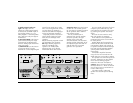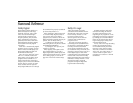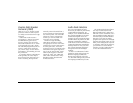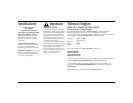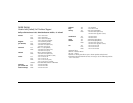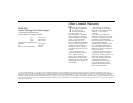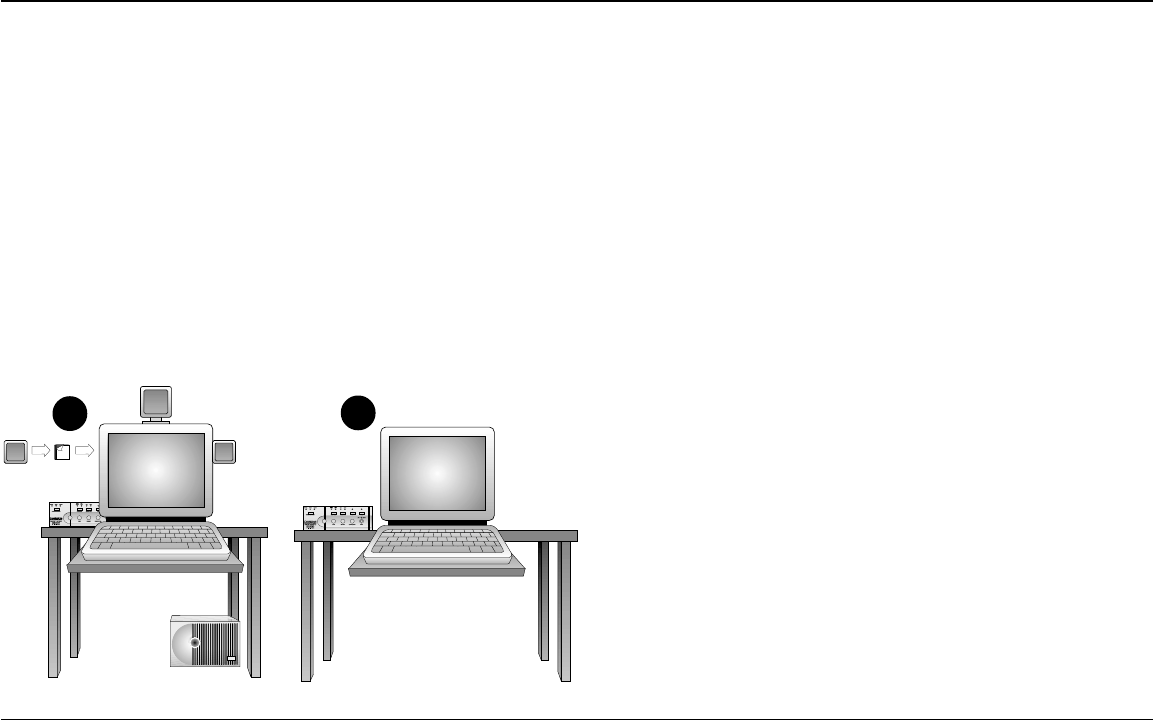
8
Decoder Amplifier
Placement
The Decoder Amplifier can be placed on
the desktop, a shelf or any site that
makes the controls convenient.
The Power Adapter cord must be
able to reach from the Decoder
Amplifier back panel to your AC
power receptacle.
Place the Decoder Amplifier on a
hard, flat surface.
There are ventilation slots on the
bottom and top of the Decoder
Amplifier’s enclosure. Don’t block the
ventilation slots by placing material on
top of or below the Decoder Amplifier.
Q
R
Making Connections
Consult the Wiring Diagram on
the next page before making any
connections.
Speaker Connections. Insert
one satellite’s plug into the
corresponding Speaker Output on
the Decoder Amplifier. Repeat
this process for the remaining
satellites and subwoofer.
Signal Connections. Connect
the Dolby Digital/SPDIF output of
your signal source to the Decoder
Amplifier using the cable with
RCA plugs at each end.
Use the signal cable with green
stereo miniplugs at each end to
connect the stereo line output of
your sound card to the LINE IN
input of the Decoder Amplifier.
Use the signal cable with black
stereo miniplugs at each end to
connect the rear output of your
sound card (if present) to the
REAR INPUT of the Decoder
Amplifier.
Power Supply Adapter Connec-
tions. Confirm the power switch is
in the “OFF” position. Insert the
power supply’s AC plug into an
appropriate receptacle. Insert the
small DC connector into the “15V
DC IN” receptacle on the back of
the Decoder Amplifier.
Hook and Loop Fasteners:
When mounting speakers with
hook and loop fasteners, make
sure that all surfaces are clean
and free of dirt and grease. Hard,
flat, unpainted surfaces work best
with hook and loop fasteners (see
Diagram Q).
Attach the fastener to the
speaker first, remove the backing
and adhere to the chosen surface.



